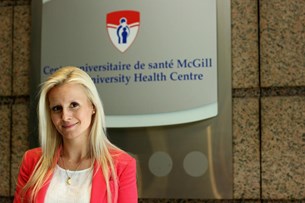Meeting
2018 Cancer Survivorship Symposium

McGill University, Montreal, QC, Canada
Genevieve Chaput , Catherine Courteau , Tristan Williams , Vinita D'Souza , Blythe Fortier-McGill
Background: Nearly 50% of cancer survivors (CS) experience psychosocial and physical treatment-related effects. CS are often afflicted with greater medical conditions than non-cancer patients: survivorship care is thus imperative. In addition to follow-up by specialists, 75% of CS also visit their primary care provider (PCP) during and after treatments. Despite their role in survivorship, insufficient knowledge and low confidence have been reported by PCPs, supporting the need to educate them. This study aimed to evaluate the educational benefit of a survivorship workshop (SW) targeting PCPs in Montreal, Canada. Methods: An accredited 60-minute SW based on common survivorship issues and recommended guidelines by recognized entities was developed and delivered to 167 PCPs at 6 sites. The same MD presented each SW. Brief matched pre, post and 3 month delayed post surveys were designed (Likert-scale and short-answer questions), and completed on a voluntary basis. Outcome measures targeted 3 levels of Kirkpatrick’s learning model: satisfaction, knowledge, and behavior. Data were analyzed with parametric (paired t-tests) and non-parametric (Wilcoxon Signed rank tests) comparisons as appropriate. Results: The pre and post survey response rate was 65.3% and the 3-month delayed post survey response rate was 56.9%. Immediately following the SW, participants were significantly more likely to be able to list standards of survivorship, t(108) = 10.50, p< .001, and to name late-effects of cancer treatment, t(108) = 5.52 , p< .001. High relevance and satisfaction of SW was reported (95%), and 99% expressed intent to incorporate survivorship information into practice. At 3 months post-SW, confidence remained significantly higher than pre-intervention levels for both knowledge of “late physical effects” (Z = 6.08, p< .001, n = 60) and “adverse psychosocial outcomes” of cancer and treatments (Z = 4.26, p< .001, n = 62). Conclusions: Much literature has focused on determining PCP barriers to survivorship care, including limited topic proficiency, yet further initiatives are warranted to optimize PCP survivorship expertise. Our SW increased PCP survivorship knowledge, and confidence levels remained greater at 3 months post, indicating its educational merit.
Disclaimer
This material on this page is ©2024 American Society of Clinical Oncology, all rights reserved. Licensing available upon request. For more information, please contact licensing@asco.org
2018 Cancer Survivorship Symposium
Poster Session
Poster Session A: Care Coordination, Cost, and Education; Communication and Transitions; Health Promotion
Care Coordination, Cost, and Education,Health Promotion,Communication and Transitions
Educational Curriculum/Interprofessional Education
J Clin Oncol 36, 2018 (suppl 7S; abstr 20)
10.1200/JCO.2018.36.7_suppl.20
20
A4
Abstract Disclosures
2024 ASCO Quality Care Symposium
First Author: Michelle Payan
2021 ASCO Annual Meeting
First Author: Eric Hess
2023 ASCO Annual Meeting
First Author: Shelley Fuld Nasso
2022 ASCO Quality Care Symposium
First Author: Eden Brauer